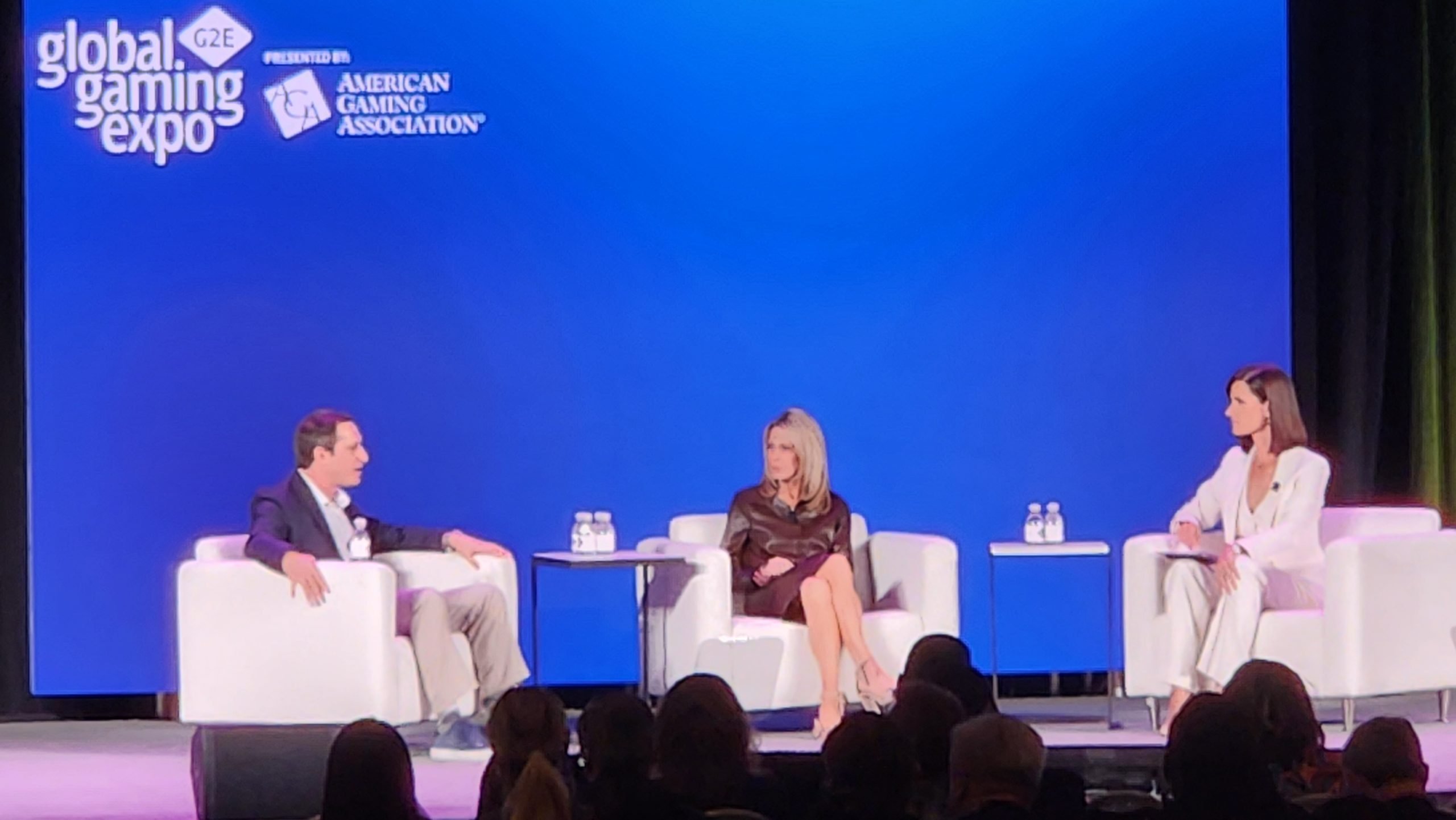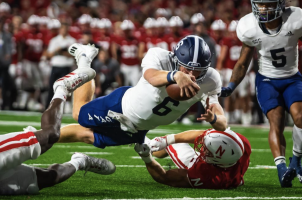Why the $400 Million Battle for California Sports Betting Could Turn Into a Long War
Posted on: October 12, 2022, 09:10h.
Last updated on: October 12, 2022, 10:03h.
The battle between California tribal nations and online sports betting operators over who controls the market in the nation’s largest state looks likely to extend beyond next month’s election. Both sides have measures on the ballot seemingly headed for rejection.

During their Tuesday keynote address at the Global Gaming Expo (G2E) in Las Vegas, leaders from both FanDuel and DraftKings acknowledged the odds against their measure, Proposition 27, were long. But FanDuel CEO Amy Howe and DraftKings cofounder, Chairman, and CEO Jason Robins both agreed that they see a path for legalization moving forward.
We absolutely live to fight another day … It has always been on the industry’s intention that we try to find a solution that aligns stakeholders, right, between the tribes, the racetracks, the government, and ultimately, consumers,” said Howe.
Prop 27 is one of two sports betting measures on the ballot. Proposition 26, a tribal-backed initiative to legalize only retail sportsbooks at Indian casinos and state-licensed racetracks, also looks like it will be rejected by voters. Recent polling shows a majority of likely voters are opposed to Prop 27, while support for Prop 26 is only at 31%.
As has been the case pretty much for the past year, tribal leaders disagree with the national online operators. This time, it’s about that path forward.
Tribes Say California is Different
A couple of hours after Howe and Robins finished their keynote with CNBC’s Contessa Brewer on G2E’s big stage, tribal leaders held a breakout to give their side of the story.
Victor Rocha, editor of Pechanga.net and conference chairman of the Indian Gaming Association, and Jacob Mejia, the vice president of public and external affairs for the Pechanga Development Corporation, were part of a panel that included California Nations Indian Gaming Association Chairman James Siva and Ione Band of Miwok Indians Chairperson Sara Dutschke. Rocha and Mejia said that the online operators just don’t understand California.
They described the polling numbers showing support for sports betting as “soft,” and said that California has a different culture. Rocha pointed out that Los Angeles, the nation’s second-largest media market, went two decades without an NFL team “because it’s a different culture.”
That’s why tribal leaders pushed for a petition to place an in-person sports betting initiative before voters. The intent was to get that on the ballot, possibly for 2020.
COVID-19 restrictions put in place by Gov. Gavin Newsom more than two years ago forced tribal leaders to get an extension on signature-gathering efforts. That extension, though, forced the measure onto the 2022 ballot. It also gave the online operators a chance to put up their own.
The online sports betting operators, California’s tribes, and the state’s cardroom casinos, which oppose Prop 26, have raised more than $400 million for their campaigns. Most of that has been spent to either promote or attack Prop 27. California’s Indian nations have admitted their priority is to defeat that bill. They see it as a threat to tribal sovereignty and control of the state’s gaming industry.
No Path … For Now
So, is there a path for sports betting to become legal in California? After the panel discussion, Rocha told Casino.org via text message that there is none.
For right now, he added. When one emerges, it will go through the state’s tribal nations.
“We will decide the path,” Rocha said. “Not them. They have no place at the table. They’re technology providers, not business partners. We will keep crushing their skulls until they get it.”
Related News Articles
College Football: Big (Under)Dogs Rule Saturday Thanks to Massive Upsets
US Sportsbooks Battle for Market Supremacy Ahead of NFL Kickoff
Most Popular
LOST VEGAS: ‘Tony The Ant’ Spilotro’s Circus Circus Gift Shop
Las Vegas Overstated F1 Race’s Vegas Impact — Report
Mega Millions Reportedly Mulling Substantial Ticket Price Increase
Las Vegas Strip Stabbing Near The Strat Leaves One Man Dead
Most Commented
-
End of the Line for Las Vegas Monorail
— April 5, 2024 — 90 Comments -
Mega Millions Reportedly Mulling Substantial Ticket Price Increase
— April 16, 2024 — 8 Comments -
Long Island Casino Opponents Love New York Licensing Delays
— March 27, 2024 — 5 Comments















